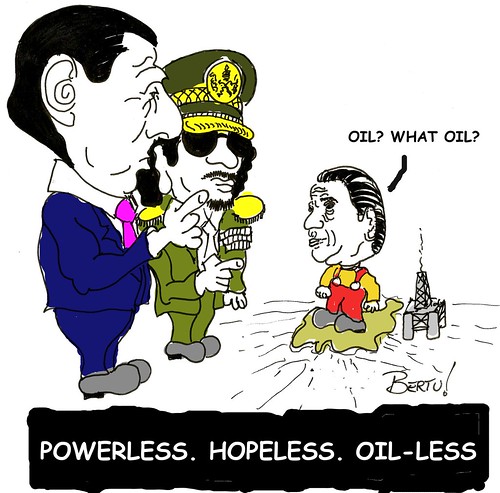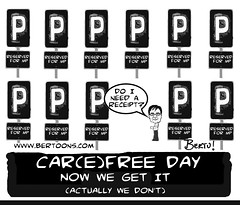Hermes the classical Greek God − and not the modern sartorial homonym − had “messenger of the Gods” as his main job description. Clad in nowt but his birthday suit, and often depicted with wingèd limbs, his main business was supposed to be that of the transmission of information among the deities busy playing with the dice of fate and generally fornicating with the more pleasurable parts of the populace. With that in mind, and probably for reasons of expedience, the classics also made Hermes patron of such things as orators and wit, weights and measures, literature and sport and invention, as well as business in general. Think Austin Gatt but sexy when naked.
It would seem that the Olympic deities would share portfolios much like a latter-day Gonzi Cabinet − surely it was less of an attempt at saving the citizens millions of obols and more of a ploy by the priests and sibyls to garner a larger part of the worshipping business. Plus ça change. But back to Hermes, that god of communication and boundaries (and the travellers crossing them). Were we to revive the pagan practice of worshiping patron gods for every nuance in our lives, a rejuvenated Hermes would find that he has a much more challenging job cut out for him.
Proximity
The relationship between geographical distance and information has, over the past few years, been sufficiently twisted as to defy the previously simple laws of physics. Take your average battle in, say, 490 BC. Marathon − the place not the race − and the Persians have just been soundly beaten (or if you believe Herodotus and not Fantozzi then the Persians are about to be engaged) so someone needs to carry some information to someone else (again either “We Won” or “Help”). Enter Pheidippides who volunteers for the run. He goes on foot. It takes him some time and he runs naked.
Take your modern day pitched battle. Say an FA Cup match between deadly rivals Man U and Liverpool. We watch it live in HD in our sitting room. Meanwhile, a pretty miffed multimillionaire player (fully clothed) tweets at the end of the match about how referee Webb might as well have worn a Man U outfit. Thousands read Babel’s (oh so apt) missive and the player is duly fined the next day for having stepped beyond the line of the “player – referee” respectful relationship. All in a matter of minutes.
It’s weird and difficult for our generation to get accustomed to. We who grew up with geography lessons about wheat in Saskatchewan, coffee in Brazil and tea in Ceylon can barely keep up with the information overload at the tips of our fingers. The twisted physics (and geography) is such that the story of floods in Brisbane creates more affinity (what I choose to call a feeling of involvement) than that of the tumult in Tunisia. Sure, the press are to blame (or to shoulder some form of responsibility) − for if they filter the news accordingly then those of us who still depend on local mouthpieces (and by local I mean national) will never hear of General Lebled’s plight in the prisons of Sfax.
Relevance
So are we more deeply moved by the story of Christina Taylor Green, born on 11/9/01 and died in Arizona than by the deaths of civilians in the Tunisian riots? Why does the English speaking press give the Brisbane floods more coverage than those in Rio? Here’s a fact: 537 people are reported dead in Rio de Janeiro and 12,000 made homeless. Australia’s floods killed 16 people. In the weird domino of affinity and relevance you might notice that English-speaking media (and this includes new media) covered the Australian floods much more extensively than the Rio disaster.
Should we be surprised that the Maltese press found more to say about families of “Gozo extraction” (is that like a mine or something?) leaving Brisbane than about the hundreds of Cariocas losing their lives? What does surprise me is the lack of information about the Maltese caught up in the crossfire at Tunisia. Malta made it to the international news thanks to speculation that the defecting President Ben Ali might choose our shores (he preferred Dubai in the end), otherwise our proximity to the land of Carthage counted for nowt insofar as we were concerned. What to make of that?
Content
There are benefits to this whole business of the new era of information. Gradually, society will develop new filters in which relevance is determined in different ways. It might be anybody’s guess whether the manipulators of information get their hands on those filters first. In any case the openness of the Internet that had hitherto been spreading can only be a boon. I say hitherto because challenges to this form of freedom of expression are evident in all quarters. Whether you like or hate Assange, the latest attacks on his site and supporters are signs of a new pitched battle between the former forces of media control (in the name of the general good) and the new media’s seemingly uncontainable spread.
We are faced with a challenge of working hard on our own personal filters. Armed with i-gadgets bringing us first hand tweets, links and news, we can choose to be passive or active. Hermes’ New Clothes are shiny and can be deceptive. Politicians are still learning to communicate beyond their normal reach (and to deal with the unexpected consequences). Sarah Palin’s double-whammy, thanks to her ill-advised crosshair gaffe, should be a lesson to anybody attempting to abuse the power of communication by stirring up hatred instead of informed dissent.
We can sit back and compare the truths behind Tunisian unrest and protest and Joseph Muscat’s Friday parade in Valletta. On the one hand we had a people against an oppressive regime that went beyond arrogance and lack of respect for rights. On the other hand we are witnessing the fabrication of an opportunistic Opposition that is playing with the toy of public displeasure at current economic downsides without stopping to concretely propose a new way ahead.
Fashions
What will we fashion out of the information available? Muscat mentioned investing in competitiveness. Behind the empty campaigning lies an awful truth: competitiveness is the key to Malta’s future. However, competitiveness can only be sown in a field of merit, accountability and open information. It is not Joseph’s half-baked litany of buzzwords that is needed to give some hope to this country. It is a new generation of non-PLPN politicians who can see beyond the old style propaganda and crowd stirring rhetoric.
Maybe it’s not just Hermes who needs new clothes.
www.akkuza.com invites you to see the video of Tunisia’s freedom rapper General Lebled… Et In Cartago Ego.






